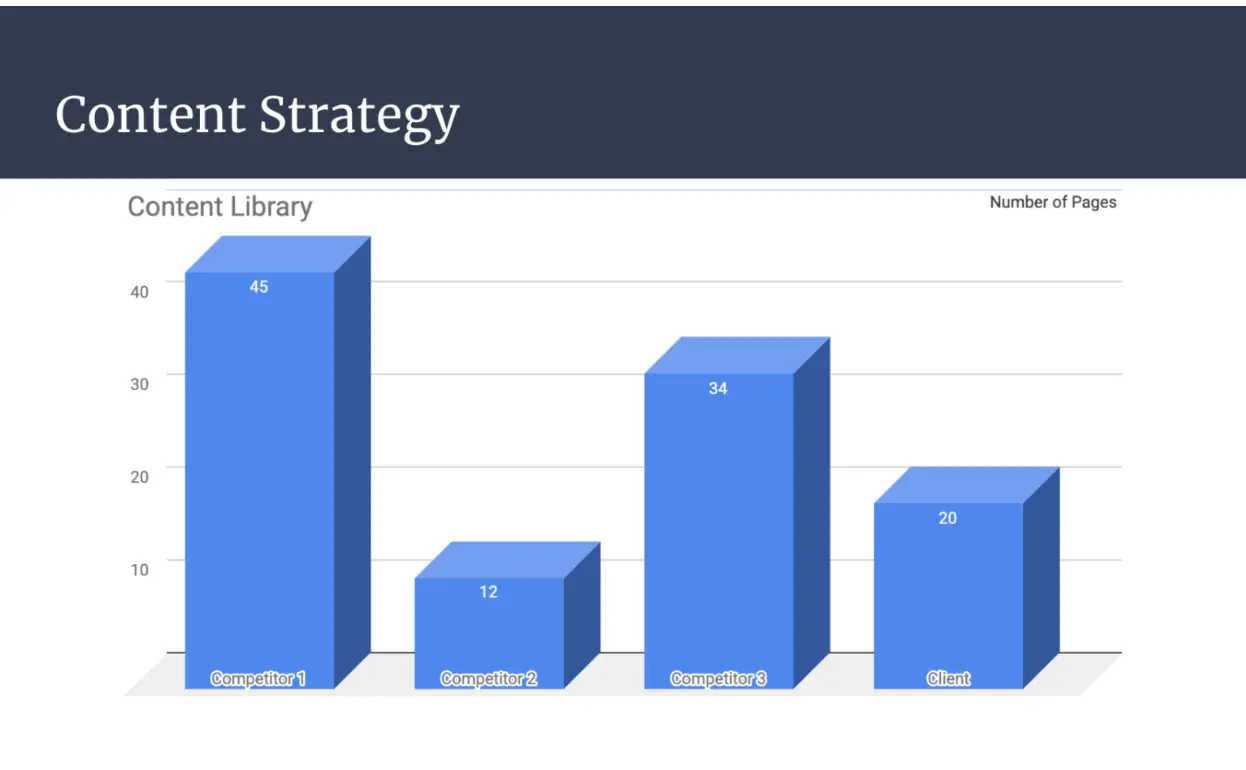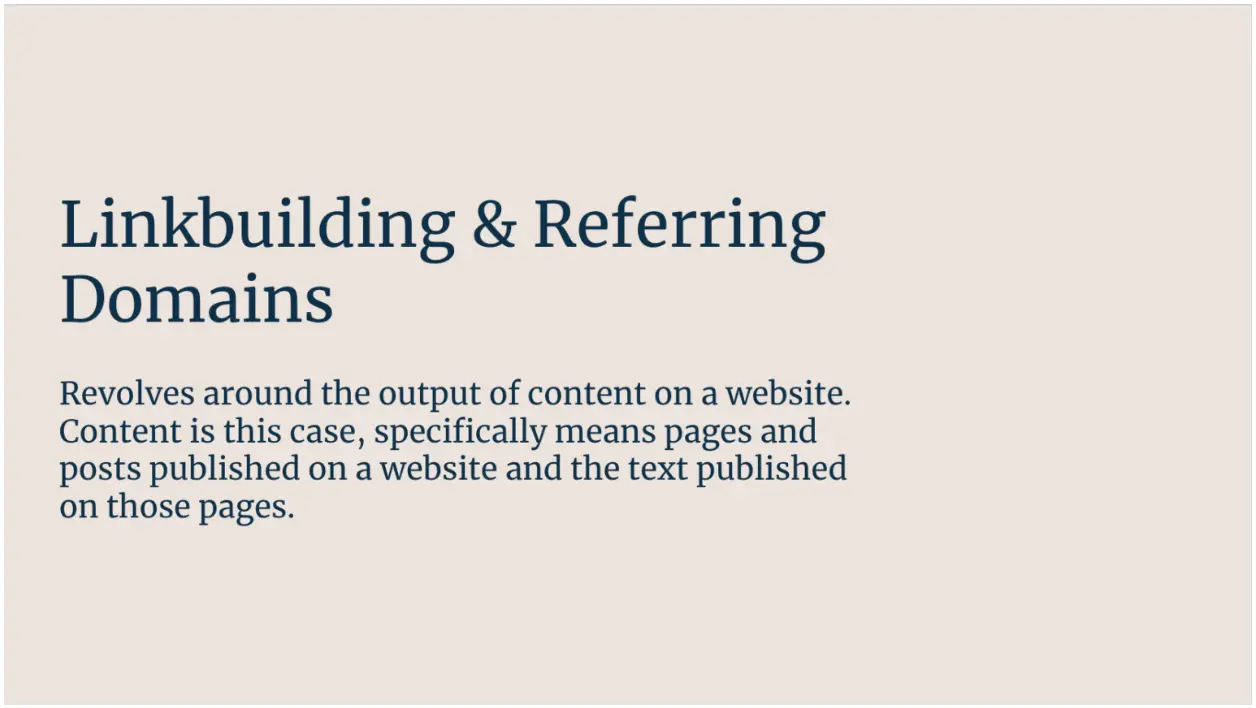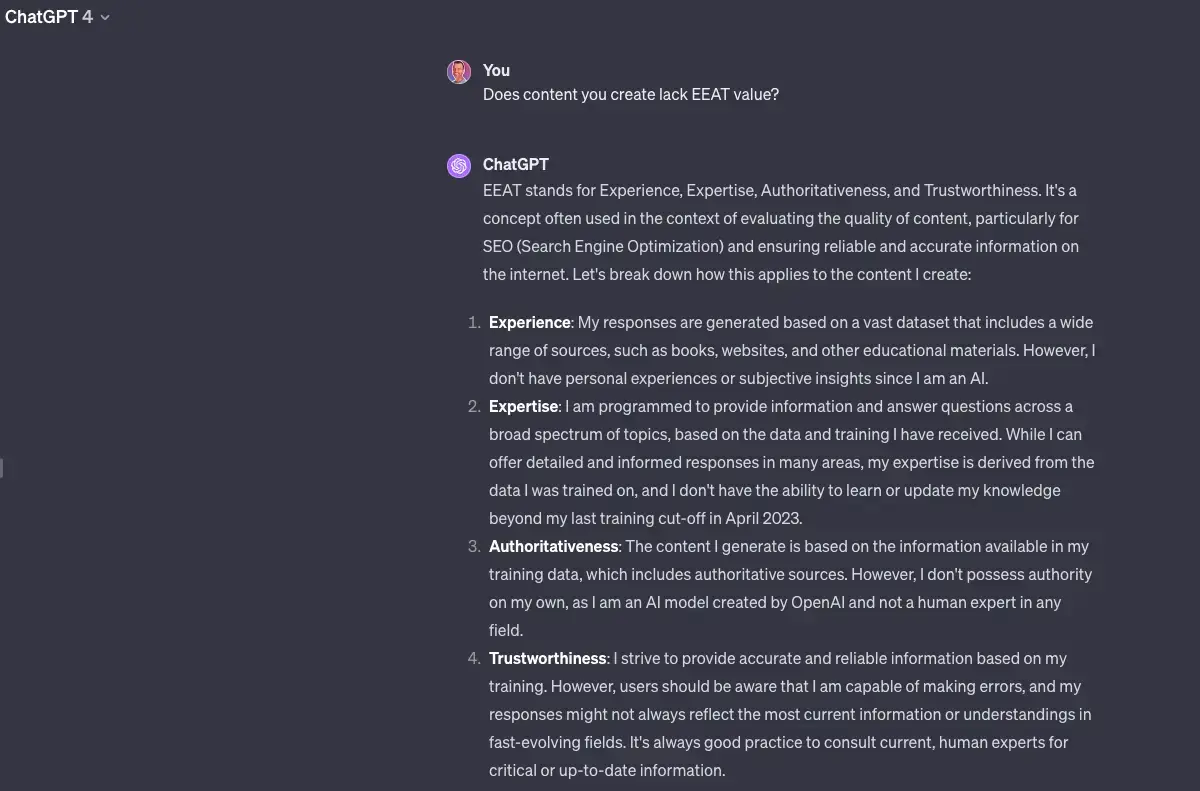Though artificial intelligence (AI) has existed for the past 50 years, it’s now reaching a level of sophistication that makes it accessible to the average consumer. AI tools are mainstream, including AI writing tools that write amazing content without human intervention.
AI tools are both a blessing and a curse for marketing. While tools like Writesonic, Jasper AI, and ChatGPT can streamline the content creation process, they must also improve them for content marketing and SEO.
How will AI-generated content rank in Google? Will it be penalized? Will the market become even more saturated with low-quality work?
We have yet to find all the answers (yet), but there is one thing we do know. If everyone has the same shortcuts, investing time and energy into long-term tactics like link-building are a means to stand out.

Image by Gerd Altmann
What Is AI? How Can It Produce Content?
AI is an umbrella term for related technologies that simulate the human decision-making process, such as natural language processing (NLP) and machine learning (ML).
AI can interpret data to make decisions and learn without specific programming, which is why it has many use cases. Finance, healthcare, e-commerce, and, yes, marketing are all adopting AI technologies to streamline processes.
With content writing, AI tools began with simple assistance, such as correcting grammar. But with the launch of more sophisticated options like ChatGPT, AI can now generate entire articles using database resources – entirely without human intervention.
Here's the rub: according to OpenAI, the company that launched ChatGPT, the tool could be more reliable. In its own words, ChatGPT sometimes "writes plausible-sounding but incorrect or nonsensical answers."
There's already a flood of AI-generated content online, but it's essential to realize that ChatGPT, and similar tools, need to write for content marketing or SEO.
They don't have a goal in mind—they're just providing information about a topic presented as a query.
These tools also use old data, so it's possible to get outdated or just plain wrong answers. That's why a human needs to be behind the process.
ChatGPT has already become immensely popular, and several big tech companies are developing competitive products. These tools also learn as they go, so they will only get better.
How Does Google View AI Content?
Google is preparing to launch its own AI writing tool, but the tech giant has been clear about its views on AI-generated content. Specifically, AI content that gets identified by an AI detector is considered spam and goes against webmaster guidelines.

Image by Simon
In the past, Google has taken a firm stance against AI-generated content, but that's not quite the case anymore.
Now, Google is saying that not all AI content is terrible, but content that AI writes with the intent to manipulate search rankings deliberately is.
This goes against guidelines and Google's primary purpose—to provide an exceptional experience to the search user.
Based on Google's spam policies, content like this is "generated programmatically without producing anything original or adding sufficient value. Examples include:
- Text that makes no sense to the reader but contains search keywords
- Text translated by an automated tool without human review or curation before publishing
- Text generated through automated processes without regard for quality or user experience
- Text generated using automated synonymizing, paraphrasing, or obfuscation techniques
- Text generated from scraping feeds or search results
- Stitching or combining content from different web pages without adding sufficient valu
These examples apply to AI as well. A human writer can create spammy, low-quality content at high volumes.
Google doesn't care about the difference. Both are considered spam written for the search engine ranking, not the user. But it's important to note that AI writing tools aren't all doom and gloom.

Image by Gerd Altmann
How Can AI Be Used for Content Marketing?
AI can be used for content marketing in many ways, such as keyword research, website audits, proofreading, and editing. Let's examine some of these in more detail.
When used correctly, these tools can significantly enhance your processes in the following ways:
-
Keyword research
AI tools help automate and analyze search intent and collect relevant keywords for your content strategy.
-
Website audits
One thing AI does better than humans is interpreting data. Concrete data shows this as fact, not assumptions or biased humans.
Machine learning (ML) tools can audit your website and find gaps or weaknesses to improve upon. A human still needs to be in the process, but it can be helpful.
-
Proofreading and editing
Human editors are essential to the content creation process, but AI writing tools can help with minor edits, typos, and misspellings to ensure that every base is covered. It’s basically like having a second set of eyes before publishing.
-
Topics and outlines
A lot of time goes into creating topic clusters and outlines, but AI tools can streamline the process by identifying trending topics ideal for a specific audience. It can also draft outlines to jump-start content creation.
-
Content ideation
If you’re struggling to come up with new content ideas all the time, AI tools can help. Not all ideas will be original, given that AI pulls from the same databases, but it can spark inspiration.
-
Voice search
Voice search is growing, and AI tools rely on NLP. These tools can help you optimize your content for voice search, enabling users to find content more easily.
These are all ways that AI can enhance and amplify your processes, but note that a human is still involved.
What Are the Limitations of AI for Content Creation?
The primary limitation of AI for content creation is you can’t simply ask the tool a question and create a polished, complete article to publish without additional steps.
AI tools are great for creating content, but you must use them strategically. Here’s why:

Image by Zupo
-
No E.E.A.T. value
In December 2022, Google updated its well-known quality rater guidelines, the E.A.T. guidelines, with an additional E for 'Experience'.
Now, it’s E.E.A.T for Experience, Expertise, Authoritativeness, and Trustworthiness.
Google weighs these topics heavily, combining them with E.E.A.T guidelines to determine the content's accuracy, value, and creator's reputation.
That’s why it’s crucial to AI humanize for SEO by ensuring content is reviewed, fact-checked, and optimized with human insight.
If you leave it up to AI, you’re bound to take a hit in the rankings, which will be hard to recover from.
But instead of taking my word it, I asked ChatGPT what it thought about the content it creates in relation to E.E.A.T, and here is what it said:
-
Low-quality information or inaccuracies
As helpful as AI is for content creation, there are certain limitations to keep in mind. For example,
- Data dependence: AI content is only as good as the data it's trained on. Biased or inaccurate data can lead to outputs that perpetuate those issues.
- Lack of understanding: AI can mimic patterns in data but doesn't grasp the true meaning or context. This can lead to factually incorrect statements or misinterpretations.
- Limited creativity: AI excels at generating formulaic content but struggles with originality and nuance. This can result in generic or repetitive outputs that lack depth and engagement.
Some specific types of inaccuracies include:
- Factual errors: AI can stumble on complex topics, misinterpret statistics, or miss crucial details, leading to factually incorrect information.
- Bias and discrimination: AI trained on biased data can perpetuate harmful stereotypes and prejudices in its outputs.
-
- Missing context: AI may lack the ability to understand context and nuance, leading to misleading or inaccurate interpretations of information.
-
Poor search results
Content marketers already have to compete with an onslaught of low-quality content written solely for search ranking and traffic.
Users may need more trust in the information they find in a search, even if it appears on the first page. High-quality content rises to the top, just as it will with competition from AI-generated content.
AI will learn and improve, but it will continue to use potentially inaccurate content for its information. With each new spin, the content and its message will become further from the truth.
There are two possibilities for how this will develop. The search quality will collapse, leaving users unsure of anything they read, or authoritative content will become even more valuable in comparison.
-
Low barrier to entry
With AI content, anyone with access to an AI tool can create content and publish it. It doesn’t require knowledge, experience, or critical thinking to create an article and publish it in a few moments.
However, businesses looking for advanced AI solutions should consider working with an AI development company to build high-quality, custom AI tools that drive meaningful engagement.
It won’t matter if the topic is trivial, like “10 reasons I enjoy ice cream,” or potentially harmful, like “best investment moves for your retirement.” The tool will provide the same content, which is now your competition.
How Does Link Building Fit In?

Image by Zupo
The rise of AI-generated content has some creators worried, and not without reason. But there is an opportunity for a competitive edge.
If everyone else is taking shortcuts with error-riddled AI content designed for search engine visibility only and missing value for the user, those who keep humans at the center of the process – both as creators and the audience – have a chance to come out on top.
Based on a recent link building survey conducted by Editorial.Link, 44.2% of surveyed SEO influencers use AI for link building. And one of the ways to do that is with link building. Earning backlinks is crucial to successful SEO since crawlers follow links to discover pages and understand site hierarchy.
The best way to earn high-quality backlinks and boost your business's SEO performance is by hiring a B2B SEO agency.
Backlinks, or external links, are links other websites include on their own content to direct readers to your content. When this happens, some of the authority of the linked site passes to you, boosting your ranking.
Correct links can improve your ranking, but the wrong ones can have enormous consequences. Link building is all about building authority from reputable sources. Relying on shady techniques will only harm your ranking, though many rely on them.
With AI content, low-quality links and spam are likely to grow. Fortunately, Google has tools to evaluate links and filter spam, differentiating some AI content from quality, human-produced work.
Stay Ahead of the Pack with Quality Content
AI tools are shaking up the industry. While they can enhance content creation in some ways, it is doubtful they will ever replace human understanding or creativity.
SEO practices like creating quality content, earning backlinks, and writing with the user in mind have always been relevant, but compared to AI, they’ll help you surge ahead of all the AI spam.
Author Bio
Jason Khoo started freelancing in SEO in college, sold his first agency, and now founded Zupo, an Orange County-based SEO consulting agency that helps clients construct powerful long-term SEO strategies. Jason also enjoys multiple cups of tea daily, hiding away on weekends, catching up on reading, and rewatching The Simpsons for the 20th time.




